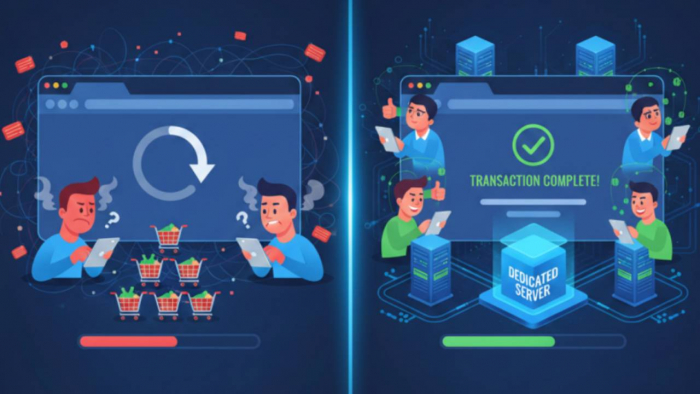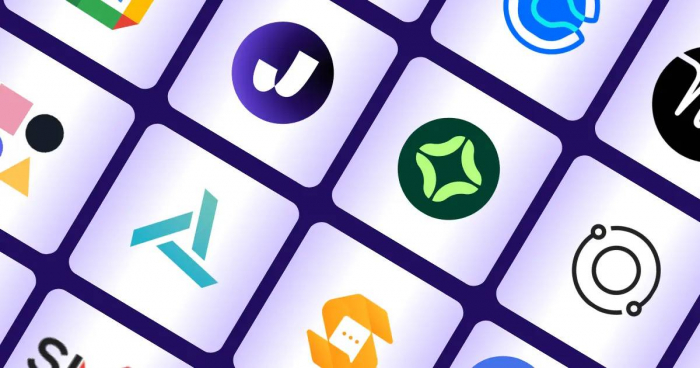Table of Content
- How Janitor AI Works Behind the Scenes
- Character Setup Process
- Supported Use Cases
- Platform Limitations
- Cost Structure
- Best Tips for Creating Realistic Characters on Janitor AI
- Is Janitor AI Safe? Privacy, Data, and NSFW Considerations
- Janitor AI vs Character.AI: Which One Should You Choose?
- Summary
Most AI chatbots today feel pre-packaged: polished, filtered, and designed to act like virtual assistants. Janitor AI takes the opposite approach. Instead of limiting you to one personality, it lets you design digital characters from scratch, controlling how they think, talk, and respond.
The platform itself doesn’t generate responses—it’s a container. You bring the intelligence through an external AI model (OpenAI, KoboldAI, OpenRouter, etc.), and Janitor AI provides the persona framework. For writers, roleplayers, and curious tinkerers, that freedom makes it more of a creative lab than a corporate tool.

It’s not a tool for everyone. But if you’ve ever wanted to design a character and see how they respond in conversation, this is one way to do it.
How Janitor AI Works Behind the Scenes
Unlike typical chatbots that generate replies through their own hosted models, Janitor AI acts as a middleware layer.
It connects your chosen LLM (Large Language Model) — such as OpenAI’s GPT-4, KoboldAI, or OpenRouter, through an API key, and then applies your character’s rules on top.
Supported integrations include:
- OpenAI: GPT-3.5, GPT-4 (most popular)
- KoboldAI: For offline, local use
- OpenRouter: For routing multiple AI models with one key
- JanitorLLM: Beta in-house model for lightweight experimentation
This structure means Janitor AI doesn’t rely on centralized servers to process your chats. Instead, it lets users experiment with model behavior, personality prompts, and world-specific dialogue.
Character Setup Process
Creating a character on Janitor AI includes several steps:
- Defining the Profile: Users set a name, description, appearance, personality type, and specific conversational traits.
- Assigning Model Behavior: Through system prompts, users can shape how the model should behave (e.g., formal, humorous, passive).
- API Key Integration: To start chatting, an API key is required from a supported LLM provider.
- Memory and Response Settings: Settings like memory prompts, response creativity, and temperature control can be adjusted.
Once a character is configured and a model is linked, users can initiate conversations via the browser-based chat interface.
Its structure appeals most to users seeking immersive, high-control AI conversations, not general-purpose chatbots.
A growing number of users are drawn to this hands-on format. In fact, a recent article exploring the psychology behind AI chatbot preferences highlights why tools like Janitor AI resonate with niche communities—they let users create emotionally responsive, tailored experiences rather than relying on rigid automation.
Supported Use Cases
The platform is generally used for:
- Creative Writing & Storyboarding – Writers prototype dialogue, test personalities, or build interactive fiction.
- Roleplay & Character Interaction – Users create lifelike personas for collaborative storytelling or entertainment.
- Language & Culture Simulation – Ideal for practicing real-world conversations with different tone settings.
- Game Dialogue Testing – Developers simulate NPC dialogue logic using custom behavior prompts.
- Chatbot Prototyping – Designers test tone consistency before integrating AI into products.
It is also used in informal contexts for general entertainment, with optional NSFW (Not Safe For Work) content settings that can be toggled by the user.
Interestingly, Janitor AI represents part of a broader shift toward high-agency, niche digital spaces where users control the tone, content, and boundaries. A recent article on the Social Media Girls Forum explored a similar theme—examining how internet users gravitate toward platforms that offer unfiltered or deeply personal spaces, often outside the mainstream. While Janitor AI and SMGF serve entirely different purposes, both reflect the growing demand for platforms that prioritize customization and user-defined boundaries over polished, pre-packaged experiences.

Platform Limitations
There are several constraints as per the reviews and technical requirements:
- An API key is mandatory to use any character; there is no built-in LLM.
- Technical familiarity is helpful when setting up custom or local models.
- Downtime can occur due to high user traffic or server overload.
- Mobile apps are not available; the platform is browser-only as of 2025.
- NSFW use must follow community guidelines, and the platform places responsibility on users for moderation.
Cost Structure
Janitor AI is free to use in terms of character creation and platform access. However, users may incur costs from external providers:
| Model Provider | Free Access | Paid Usage |
| OpenAI | Trial available | Usage billed per token |
| KoboldAI | Yes (local only) | N/A |
| OpenRouter | Varies by model | Pay-as-you-go options |
| JanitorLLM | Free (beta) | May change in the future |
Best Tips for Creating Realistic Characters on Janitor AI
Making a character “feel real” takes more than giving it a name and a backstory. Here are some proven tips for designing characters that respond naturally in Janitor AI:
Write a detailed persona description – Include not just traits but quirks, values, and speech habits. Example: “Always cracks dry jokes when nervous.”
Use system prompts strategically – Add rules that guide tone (“formal but warm”) or boundaries (“never break character”).
Experiment with temperature and creativity settings – A slightly higher temperature produces more variety in responses, while lower settings keep answers consistent.
Leverage memory prompts – Use memory fields to remind the AI of past events in your chat, which makes conversations feel continuous instead of fragmented.
Test and refine through dialogue – Start chatting and adjust traits if the character drifts too much. Think of it as training a role rather than building once and forgetting.
The more effort you put into crafting nuance and consistency, the more your Janitor AI characters will feel like fully developed personalities instead of generic chatbots.
Is Janitor AI Safe? Privacy, Data, and NSFW Considerations
One of the biggest questions people ask before trying Janitor AI is whether it’s safe. The answer depends on how you use it.
Unlike platforms with centralized moderation, Janitor AI is essentially a shell that connects to external models via your own API key. This setup means:
Data privacy depends on the model you connect to (e.g., OpenAI’s GPT vs a local KoboldAI instance).
Janitor AI itself does not store or process your conversations in the same way commercial apps like Replika might.
For users concerned about sensitive roleplay or NSFW scenarios, the platform puts responsibility on you to manage moderation.
For maximum privacy, many users run Janitor AI with local models like KoboldAI. Others connect via providers that publish clear data policies. If safety and anonymity are priorities, check the model provider’s terms before you start.
Several other platforms offer chatbot or AI character interactions:
Janitor AI Alternatives: What They’re Really Best For
| Platform | Best For | What Sets It Apart | Limitations |
|---|---|---|---|
| Character.AI | Casual AI chats, fictional personas | Built-in models, easy UI, family-safe filters | Limited customization, strict NSFW policies |
| Replika | Emotional support, companionship | Empathy-driven responses, personal AI relationships | Minimal control over character logic or behavior |
| NovelAI | Storytelling, narrative writing, lore-building | High-quality prose generation, memory-rich storytelling | Not ideal for real-time back-and-forth chat |
| Botpress | Business bots, support automation | Flow-based visual bot builder, integration-ready | No character or creative flexibility |
| KoboldAI | Offline/local AI, unrestricted experimentation | Runs on your own device, full content control | Technical setup, no UI out of the box |
| OpenRouter | Multi-model API routing for devs | Lets users switch between AI models with one key | Requires coding or external interface like Janitor AI |
Each offers different capabilities depending on the intended use case.
Platforms like OurDream AI show how AI tools are branching into personalized companionship—but Janitor AI leans more into character experimentation and storytelling than emotional bonding.
Janitor AI vs Character.AI: Which One Should You Choose?
At first glance, both platforms enable conversations with custom personalities — but their philosophies differ:
| Feature | Janitor AI | Character.AI |
|---|---|---|
| Setup | Requires external API | Built-in LLMs |
| Customization | Deep control over behavior | Limited to UI settings |
| Content Policy | User-moderated | Strict filters |
| Audience | Advanced creators | Casual users |
| Offline Support | Via local models | None |
| Learning Curve | Moderate–High | Low |
If you prefer simplicity, Character.AI wins.
If you crave agency, realism, and experimentation, Janitor AI clearly leads.
Summary
If you're someone who enjoys experimenting, storytelling, or building unique character personalities, Janitor AI feels like a creative playground. It’s not polished, and it won’t hold your hand—but that’s part of its appeal. You bring the intelligence, shape the behavior, and watch the character come alive.
It won’t replace a virtual assistant or business chatbot, but if you’re into roleplay, dialogue writing, or just curious about AI personalities, it’s one of the most flexible tools out there. Just be ready to set things up yourself, and accept a few rough edges along the way.
Janitor AI – Quick FAQ
Q1: How is Janitor AI different from ChatGPT or Replika?
It’s fully customizable and requires your own AI model via API. No built-in chatbot engine.
Q2: Who is Janitor AI for?
Writers, roleplayers, and users who want full control over AI character behavior.
Q3: Which APIs work best with Janitor AI?
OpenAI (GPT-3.5/4), KoboldAI (local), OpenRouter, and JanitorLLM (beta).
Q4: Is Janitor AI safe and private?
It’s safe if you manage your own API keys. No clear NSFW filters or content moderation.
Q5: How well does it perform in chats?
Performance depends on the API used. OpenAI is fast; local models may lag.
Q6: Janitor AI vs Character AI—what’s better?
Janitor AI offers freedom; Character AI is easier but more restricted.
Q7: Alternatives to Janitor AI?
Character AI, Replika, NovelAI, and Botpress, depending on your needs.
Q8: Is there a mobile app?
No, it’s browser-only.
Post Comment
Recent Comments
Sophia Bennett
Jun 26, 2025Janitor AI stands out with its extensive character library and customization options. I particularly enjoy the immersive scenarios and the ability to craft detailed personalities for bots. The community is active, and I often find inspiration from other users' creations. That said, the platform could benefit from improved stability and more robust moderation to ensure a consistent experience






James Mitchell
Jun 26, 2025As someone interested in AI and storytelling, Janitor AI has been a valuable tool. The character interactions feel natural, and the platform's flexibility allows for diverse narratives. While the free version offers substantial features, I opted for the Pro version to access additional functionalities. The only drawback has been occasional downtime, but the development team is responsive and continuously working on improvements.